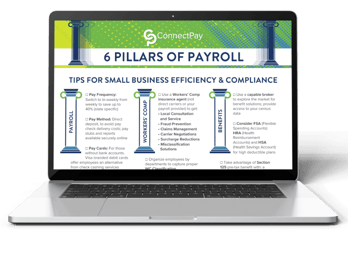
For individuals, retirement plans are usually pretty straightforward. Most people get their 401(k)s through their employer, and when they switch jobs they take their plan along with them. But when small business owners shop for retirement plans for their employees, there are a lot of moving parts, which means a lot can go wrong. To help make sense of the mistakes many small businesses make, and learn what you can do differently, we spoke to Linda Chadbourne, owner and president of Hills Pension Associates, a retirement plan consulting company for small to midsize businesses.
Mistake 1: Having your payroll vendor administer your retirement plan
When a small business owner is tasked with setting up a retirement plan, they often don’t know whether to use their payroll vendor to administer a plan, or a third-party administrator (TPA). The latter is a better choice. Designing a plan for your business requires specialized, professional assistance. Payroll providers are good at what they do: managing payroll. But they won’t hold their clients’ hands and talk them through all the details of retirement plans. A TPA, on the other hand, will sit down and design the plan with you, asking relevant questions about what you want. That’s important because you want to make sure the plan design meets the company’s goals. “Setting up the wrong plan can cost the employer tax savings and unhappy employees,” Chadbourne says. “Having a lot of communication is key.”
Mistake 2: Not doing your due diligence
Before committing to a retirement plan provider, it’s imperative that you do some preliminary research about what goes into a retirement plan and what you’re looking to get out of one. Your best bet is to ask your financial advisor or CPA for a recommendation of a TPA they like. Once you have a TPA, they can walk you through everything you need to know about any plan you’re considering. The most important thing, according to Chadbourne: “Ask more questions.” When shopping around, ask exactly what you’ll be paying for; if you’ll have to do your own submission; if someone will educate your employees about the plan, etc. The more you know, the better equipped you’ll be to make an informed decision.
Mistake 3: Going with plan sponsors that don’t include advisors
Another hazard of using a payroll provider to set up your retirement plan is that the payroll vendor might assign an advisor who is uninvolved, or no advisor at all. Chadbourne recommends always having an advisor on the plan because they provide investment advice and “they have that fiduciary responsibility,” she says, essentially meaning they’re obligated to act in the client’s best interest. There’s a lot of liability when you don’t have an advisor on your plan, but having one minimizes your risk of big losses, lawsuits, and penalties for noncompliance.
Mistake 4: Focusing on fees rather than service
Small business owners frequently get caught up with searching for providers who offer the lowest possible management fees — think setup fees; annual maintenance fees; more fees for each plan participant, etc. It’s true, these fees can add up, so it’s definitely something to consider — it’s just not the only thing. More important is the type of service that a retirement plan sponsor will provide. It’s important to work with a TPA that will meet with you a couple of times a year and help sort through any problems you’re having with your plan. If you select a provider based on fees alone, you probably won’t receive this level of assistance. Instead, you’ll have to manage a lot of the logistics themselves, which can be time consuming (not to mention unwise, because you want a retirement plan expert doing that work).
At the end of the day, that’s what it comes down to: making sure you have a trusted expert on board.
“You really just want somebody who has hand-holding services, who has credentials and who has the training,” Chadbourne says. If you have that, you’re well on your way to picking the retirement plan that’s best for your business.










